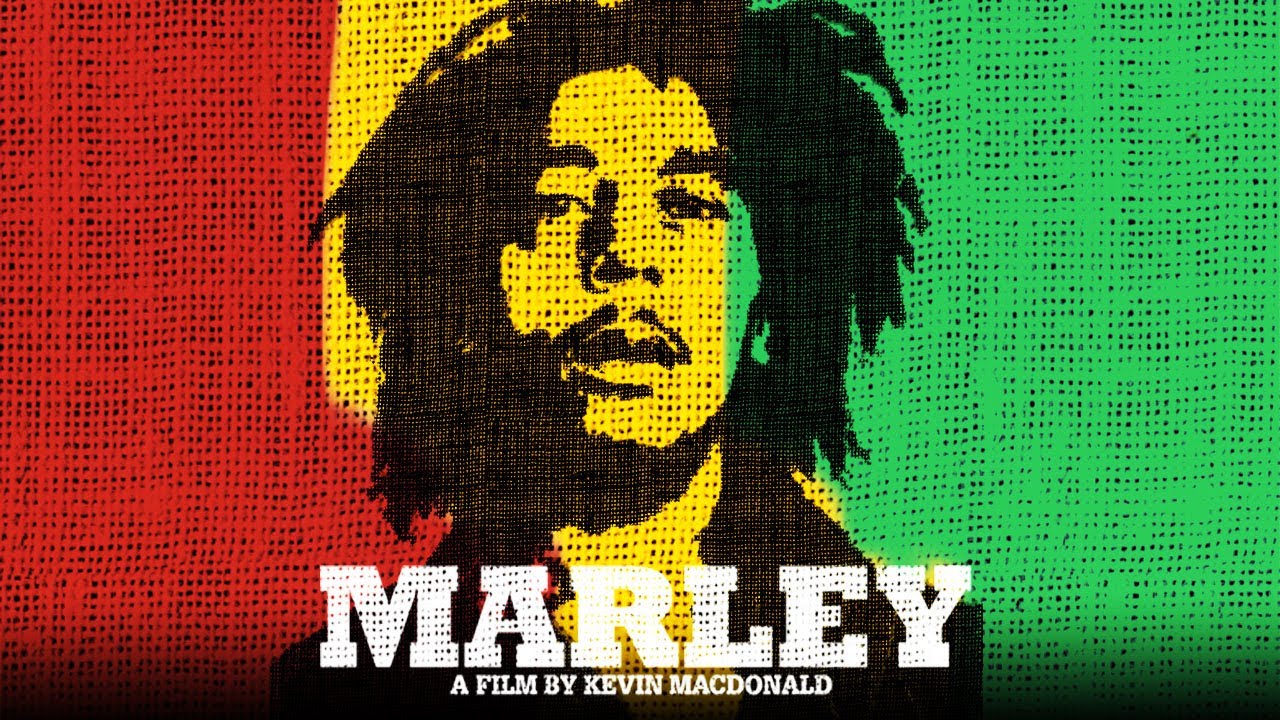Director: Kevin Macdonald,
Watched on: Cable On-Demand,
Rating: 1.5/5.
I knew going into Marley, the documentary about the life of the late reggae superstar, that there was no way this or any film would be able to match the transformative allure and muscular power of the man’s music. So there was already a benefit-of-the-doubt halo around the project that almost demands an uncritical embrace of its approach to the subject matter. But I was not prepared for how conventional and bland Marley is. Clocking in at 144 minutes, this overstuffed fatty of a documentary carries the heavy gloss of an American Masters hagiography on steroids.
Director Kevin Macdonald, who made a memorable but stagey re-enactment doc a few years ago, Touching the Void, before turning to fictional films with The Last King of Scotland and State of Play, movies that carry the aura of serious engagement but are really only spiffy, quasi-topical entertainments, throws up his hands early in Marley, deciding on an academic cut-and-paste structure of talking heads, generic Jamaica b-roll, and all-too-brief snatches of Marley’s music. It’s the man’s music, if nothing else, that should save a film like this, but Macdonald uses Marley’s vast discography as a background soundtrack to stitch together an unimaginative chronology of his life and times. Each time we are treated to rare concert footage or an early studio track from Marley’s career, the music quickly recedes, papered over with more interviews or an onscreen text moving us dutifully along to the next phase of his life. It is only due to Marley’s remarkable legacy that even a casual fan should bother with this ho-hum chronicle, since there are fascinating revelations about the Rastafari religion, Marley’s relationships with women, his iconic status as a unifying figure among the Jamaican people, and sadly, the first stirrings of the cancer that eventually killed him.
It’s that sadness which, for me, should be the guiding thread in this film. I couldn’t help but ruminate on the tragedy of Marley’s death from melanoma at age 36, which came at a time when he had become a potent political force, a true man of the people, almost on the level of Gandhi or Martin Luther King, Jr., and his influence internationally was monumental. One hundred thousand fans attended a concert in Milan. He was selling out Madison Square Garden. His album Exodus stayed on the British Top 100 for 56 consecutive weeks. None of this information is in the Marley documentary. I read it on wikipedia.
There is one riveting piece of footage which shows Marley on stage bringing together the rival political candidates during a fractious time in their country, and there was never an indication that Marley, in stark contrast to Bob Dylan, was going to shy away from his status as an inspirational cultural voice. His loss at such a pivotal age should provide a stark and moving counterweight to his uplifting, galvanizing musical legacy, and a more nuanced director would have cut back on the procession of talking heads–even though they are all colorfully costumed and speak lovingly about Bob–in favor of a deeper examination of the man’s interior world, his songwriting, his fears and insecurities, and his spiritual life, all set to key musical interludes in which the potent sway of his songs, heard in their entirety, come to life.
Marley was also a flag bearer for Rastafari, which at first comes across as a benign religious mash-up of elements from Mormonism, Scientology, and various tribal cults but is really a way of life, marked by a rejection of Western society, or Babylon, and the spiritual use of ganja not as an excuse just to get stoned but because the drug is essential to revelation and creativity. It’s hard to fault a belief system which embraces an herb that makes the faithful mellow, happy and forgiving. This is also worth more examination, since Marley’s open advocacy of weed has turned even more people onto reggae music, but the movie breezes past this idea, too, more content to have someone on screen describe Marley’s impact rather than show us.
There are other problems with the film which continually nibble away at its efficacy. Cheesy, large format yellow text keeps popping up on the screen to connect the timeline of events. Nearly all of the interviews are shot in elaborate indoor settings with luxurious lighting schemes, rather than in the streets and shanties and mountains of Jamaica. Too many controversial topics are brushed off, such as the poor advice Marley received from doctors and family regarding his cancer and the suggestion that Island Records co-founder Chris Blackwell, who distributed Marley’s first hit albums, was ruthless in his business dealings with other artists.
So much to say, so little time. I kept wanting to know more, go deeper, stay longer, but after two-and-half hours of this picture’s paint-by-numbers style, I was ready to move on to my I-Tunes, queue up my collection of Bob Marley, and hit shuffle.

